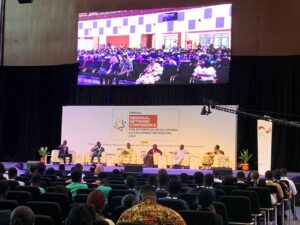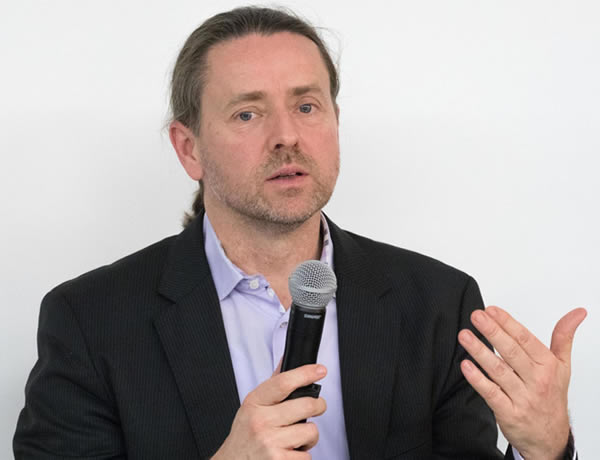By Juliet ETEFE ( [email protected])
Country Director of GIZ Ghana, Dr. Dirk Aßmann has highlighted the critical need for collaboration in strengthening the micro, small, and medium enterprises (MSMEs) ecosystems.
Speaking at the 2024 Greater Accra Annual Regional Network of Entrepreneurial Development and Employment Promotion Conference, he urged stakeholders to unite their efforts to better support MSMEs, which are the backbone of Ghana’s economy.
Dr. Aßmann underscored that MSMEs account for over 90% of businesses in Ghana and provide around 80% of total employment, making them indispensable to the country’s economic stability and growth.
He noted, however, that these enterprises often face challenges such as limited resources, market access, and regulatory hurdles.
“Over the past decade, stakeholders – including public and private business development services, international donors, development partners, and financial institutions – have worked tirelessly to support SMEs. Yet, a common challenge remains: the need for greater co-ordination to avoid duplication of efforts and inefficiencies,” Dr. Aßmann said.
He emphasised that a unified approach would not only improve service delivery but also boost economic growth and job creation across Ghana.
He cautioned against the overemphasis on workshops and training sessions, which can sometimes distract SMEs from their core activities.
“We have all seen instances where SMEs spend more time attending multiple workshops provided by various organisations, instead of focusing on growing their businesses. Better collaboration among service providers can prevent this and enhance the effectiveness of our efforts,” he noted.

The conference, part of the support to the private and financial sector programme aims to establish a regional network to drive enterprise development and employment promotion.
Dr. Aßmann reiterated the transformative potential of collaboration saying: “By fostering collective action and knowledge sharing, we can build a resilient and inclusive economic landscape that uplifts both businesses and communities.”
For his part, the Ambassador of the European Union (EU) to Ghana, Irchad Ramiandrasoa Razaaly expressed his admiration for the country’s resilience and the role of MSMEs in driving economic recovery.
He acknowledged the significant unemployment challenges the country faces, noting that around 400,000 young Ghanaians enter the labor market annually.
He highlighted the EU’s commitment to addressing this challenge by focusing on skills development, particularly in digitalisation and green industries. “Digitalisation is already creating a growing demand for fancy digital skills in Africa,” Ambassador Razaaly said, adding that green skills will also play a crucial role in Ghana’s future.
Ambassador Razaaly further emphasised that investment in skills is not only important for Ghana’s future but for the entire African continent.
He projected that Africa will become a major economic powerhouse, both due to its demographic growth and its increasing role in global economic development.
“Africa will be the powerhouse not only for demographic growth but also for economic growth, not only in Africa but of course in the rest of the world,” he stated.
Dr. Stephen Amoah, Deputy Minister of Finance, who delivered the keynote address on behalf of the sector minister, Dr. Mohammed Amin Adam, reiterated the essential role of SMEs in job creation and economic resilience.
Dr. Amoah acknowledged the economic challenges Ghana had faced, particularly due to its import-driven economy and the global crises that have impacted the country.
He encouraged entrepreneurs to focus not only on securing funding but also on developing the necessary skills to remain competitive in a rapidly changing business environment.
“Funding alone is not enough; entrepreneurs must upskill and adapt to remain competitive, globally,” he said.
The Deputy Minister also stressed the importance of collaboration between the public and private sectors to create a business-friendly environment.
He pointed to the challenges caused by fragmented efforts and overlapping initiatives from various stakeholders and called for better coordination and resource-sharing to maximize the impact of development programmes.
Dr. Amoah took the opportunity to express gratitude to the German government and the European Union for their continued support in helping Ghana advance its development goals.
The 2024 Greater Accra Annual Regional Network of Entrepreneurial Development and Employment Promotion Conference closed with a strong call for coordinated efforts to unlock the full potential of MSMEs, with a focus on creating sustainable solutions for enterprise development and job promotion.
The event underscored the critical importance of SMEs in Ghana’s economic recovery and future growth, reaffirming the need for collaborative action from all stakeholders.










